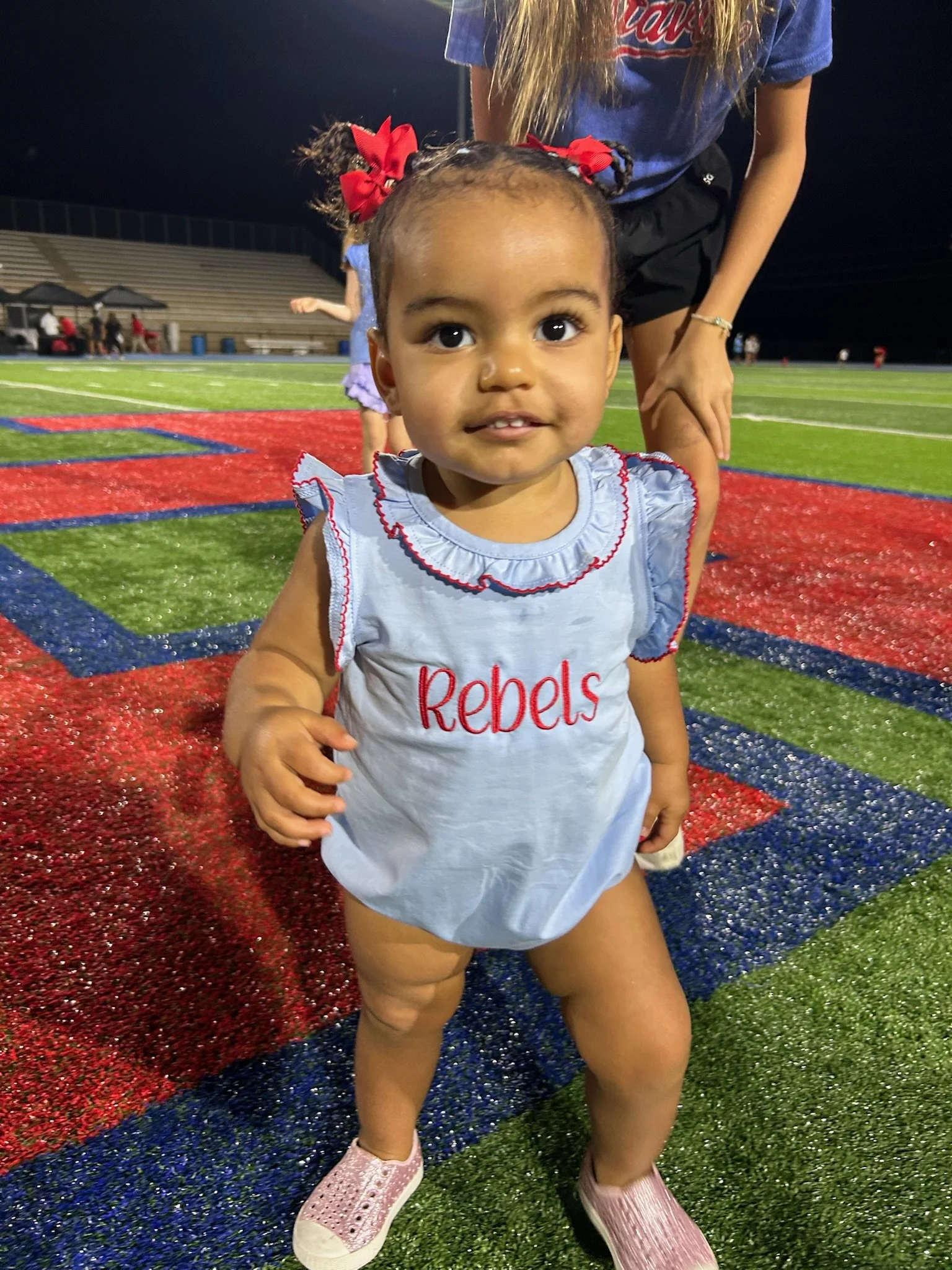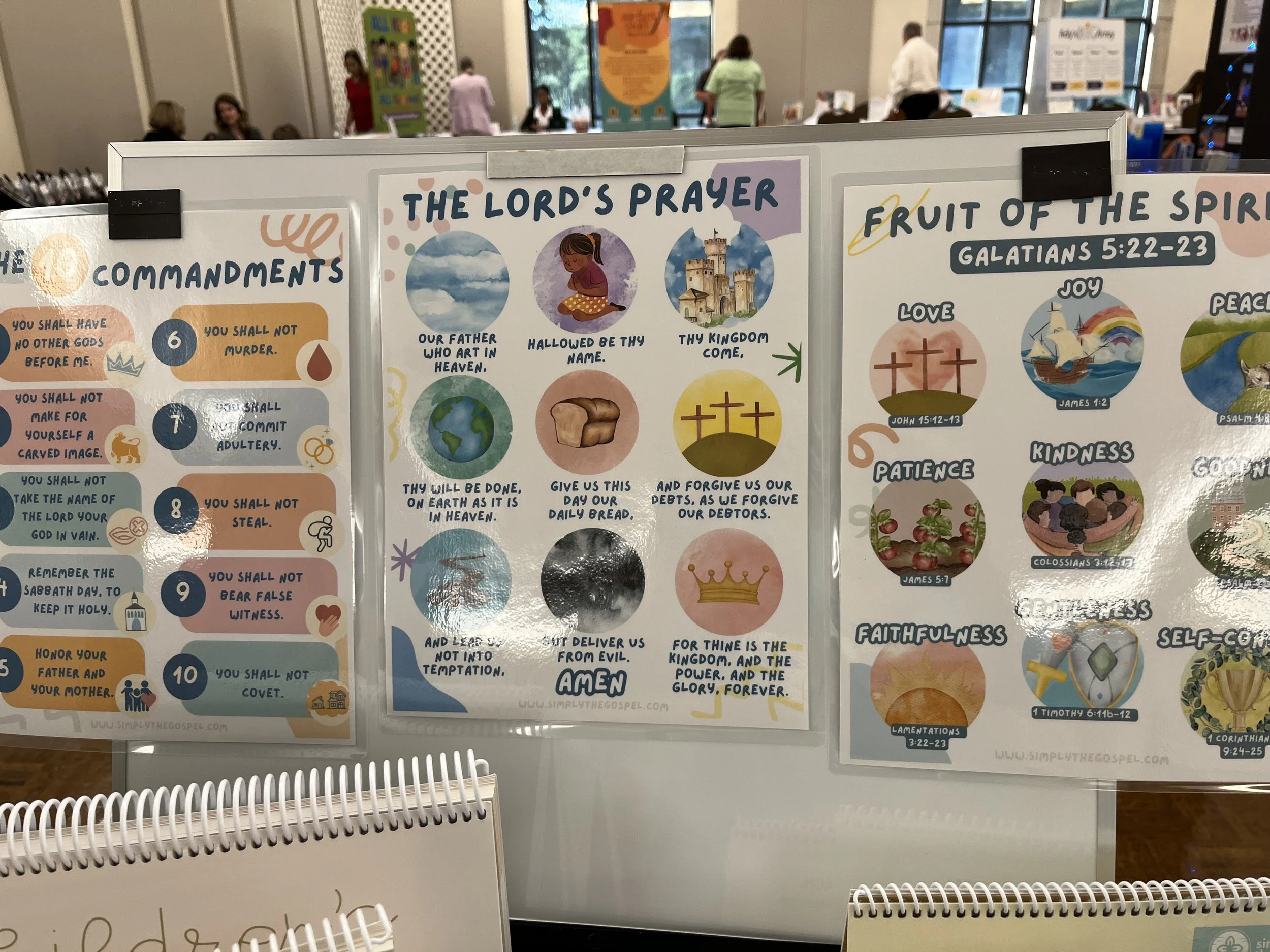The Language of Prayer
"Lord, teach us to pray."
Luke 11:1 (NIV)
Several years ago, after weeks of "uh-oh" and "ugh" and an occasional "ball" or "dog," our oldest granddaughter’s words began quickly rolling off her tongue. One night after dinner, Julia donned her Mama's Boston Red Sox baseball hat along with her own straw sunhat, hot pink sunglasses, and two of my aqua bracelets, one on each arm, and gave us a fashion show. Laughing, we all exclaimed "Beautiful!!" Julia immediately responded with her own, "Beautiful!"
To be honest, some of her early words had to be occasionally corrected. Sitting in her highchair and hearing a loud thunderclap during an evening storm, Julia listened before exclaiming, "Noah!" I laughed as I corrected her saying, "No, Julia, It's thunder. We just heard thunder."
Bruce and I kept our 19-month-old granddaughter for a few hours Sunday afternoon. Birdie James’ words, like her cousin Julia’s, are beginning to roll easily off her tongue as she discovers that words have meaning.
Thinking about the process of learning language yesterday, I've realized that the paradigm is something like this:
We say the word.
Birdie hears the word.
We show the word.
Birdie eventually knows the word.
In other words, learning any language isn't just about repeating words. To properly understand the meaning of the word, one must model the concept behind it, thus connecting the sound of the word to its concept. We might say that learning a language properly requires both lips and lives, the message and the model.
Jesus, the greatest teacher who ever lived, certainly taught his followers with the message and model concept. In his most famous sermon, the Sermon on the Mount, Jesus in just five short sentences teaches us to pray, saying:
Our Father who art in heaven
Hallowed by Thy name
Thy Kingdom come
Thy will be done
On earth as it is in heaven.
Give us this day our daily bread
And forgive us our debts
As we forgive our debtors
And lead us not into temptation
But deliver us from evil. Matthew 6:9-13 (KJV)
We now know Jesus’ prayer as The Lord’s Prayer, but set in its initial context, his words form the Disciples’ Prayer.
When we look at Jesus' prayer language, one of the most striking characteristics is Jesus’ use of the word "our." Jesus, Son of God, had every right to call God his Father. But in his model prayer, Jesus teaches, encourages, and even commands us, to pray corporately. He doesn't say "My Father," choosing instead to say, "Our Father." He identifies with us. His model prayer is "Your/our" centered, not "me/mine" centered.
But God is not just our Father who is personal and knows our needs. We serve a King with a kingdom. Last week Briarwood hosted our National Ministries conference whose theme was taken from the Lord’s Prayer. Our conference theme was Your Kingdom Come. Guest speaker Dr. Sandy Willson in his opening remarks after reading the Lord’s Prayer declared, “Ladies and Gentlemen, we have a King!”
I couldn’t help but be struck by the irony that last weekend was also the designated day for the No Kings protest. In context, No Kings participants were protesting President Donald Trump’s executive actions. The reality, however, is that none of us since Adam and Eve’s Fall in the Garden of Eden want a king. Apart from Christ, all of us want to be a king, desire our own kingdoms, and want our own way. Those in Christ, however, acknowledge we have a King who is THE King of Kings and Lord of Lords (Revelation 5:13) who is worthy of our adoration, worship, and submission (Matthew 6:9-10).
Jesus’ lips give us the model for the language of prayer in the Kingdom of God. His life gives us the model for a pattern of prayer for citizens of God’s kingdom and members of God’s family. We are children of the King, invited to the throne room of grace, to petition our Father with our needs so that we might receive mercy and find grace in our time of need (Hebrews 4:16).
One author writing on prayer says that prayer must be learned as a discipline before it can be experienced as a delight. I don't know about you. but I struggle with prayer both as a discipline and a delight. And much like my granddaughters learning the English language, I need to better learn the language of prayer.
Lord, teach me to pray!




